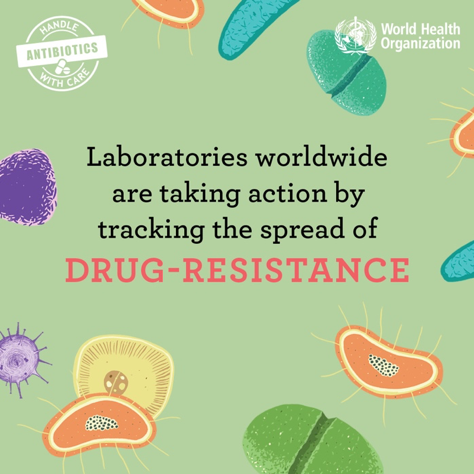The Promise of Bacterial Vaccines in the Fight against Antimicrobial Resistance
In recent years, Janssen has become well-known for its ongoing efforts to develop investigational vaccines against viruses like HIV and Ebola. But you may not know we are also working to combat bacterial infections.
From a young age, I have been fascinated with life – and its natural enemies. Bacteria are one of the most common lifeforms on earth. Each one of us has approximately 30-50 trillion bacterial cells in our bodies; in fact, the human microbiome is essential for our healthy daily functioning.
But while many bacteria are helpful or perfectly harmless, some are major public health issues, such as E. coli. Our first line of defense in treating harmful bacteria has traditionally been antibiotics. But there are concerns about our overuse of antibiotics, which could render them useless – an alarming trend known as antimicrobial resistance (AMR). AMR exacerbates an already existing medical need in the aging population related to serious bacterial infectious diseases.
To mark World Antibiotic Awareness Week, here are five key facts about AMR – and how vaccines can play a vital role in helping us to prevent this threat.
- AMR is making common yet life-threatening infections difficult or even impossible to treat. Antimicrobial drugs, such as antibiotics, have long been a cornerstone of modern medicine. Yet, many pathogens are developing resistance to these drugs at a rapid rate – reducing the effectiveness of treatments that patients and doctors around the world rely upon. Already, infections like ESBL/CRE (with E.coli being the lead bacterium), MRSA (a drug-resistant type of “staph” infection) and MDR-TB (multidrug-resistant tuberculosis) account for approximately 700,000 deaths every year.

- There is a concerning, unmet medical need to prevent serious diseases caused by antibiotic-resistant bacteria among the elderly. The burden of serious bacterial infections among senior citizens is rising due to several, related forces combining at the same time – the emergence of AMR, the aging of the global population, and increasing demand for complex invasive medical procedures that can lead to infection (such as hip or knee replacements).
- The leading pathogen causing these serious diseases is a dangerous bacterium called “ExPEC.” ExPEC may not be a household name, but it is well worth understanding. It is a disease-causing form of E. coli. ExPEC stands for Extra-intestinal Pathogenic E. coli – which means that the bacterium has damaging effects throughout the body, not just in the gut. ExPEC causes the vast majority of urinary tract infections (UTIs), and is a leading cause of adult bacteremia and sepsis (when the bloodstream becomes contaminated with bacteria). Not only are they common, leading to high morbidity and mortality, but ExPEC infections are extremely costly. In the U.S. every year, UTIs and sepsis alone cost US$2 billion and $20 billion, respectively.
- New innovations, including the development of new vaccines, may have the potential to push back bacterial health threats like ExPEC. There is growing antibiotic resistance among ExPEC strains. Having vaccines against ExPEC could help protect seniors from developing often debilitating diseases, allowing them to live more years in good health. Efforts to develop an effective vaccine against ExPEC are underway, and Janssen is at the forefront of these efforts. I am proud to be leading this drive, in collaboration with our partners.
- We also need a holistic approach. Research and innovation will be critical to make progress against AMR. Yet we also need to ensure the appropriate and responsible use of existing antibiotics – because we need every tool at our disposal, including treatments that are effective when bacterial infections can’t be prevented. If we act now – by preserving our treatment options and creating new prevention tools like vaccines – we can help control the bacterial health threat.
That’s why Janssen is a strong supporter of the World Health Organization and its campaign for antibiotics awareness. Without urgent and meaningful action, individuals, families and communities around the world will face a tremendous threat in the years ahead from untreatable infections.

